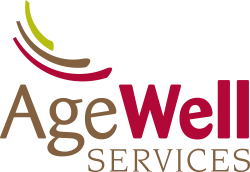This is the story of two seniors. These women, aged 78 and 86, live alone and have trouble fixing meals to keep their nutrition levels where they should be. Both women suffered from being underweight and malnourished. Both women called to request Meals on Wheels, and that is where the similarities end.
For Doris Hagood, 86, taking care of herself and her family has been hard-wired into her whole being. She was widowed at 38 with three children to raise. But now her arthritis has so damaged her hands, she couldn’t hold a knife, couldn’t open a can or prepare a healthy meal for herself without great pain. Her daughter convinced her to try Meals on Wheels for two weeks.
“I was actually totally surprised,” Hagood said. “They were really, really good meals. There’s a lot of variety, always a fruit and a vegetable. I get lunch and dinners now. I don’t know what I would have done without it.”
Her primary care physician also is convinced the balanced nutrition has helped Hagood improve her blood sugar and cholesterol levels.
“I felt so much better than before,” she explained. “It also helps me emotionally just knowing the food will be there for me. It’s security and peace of mind.”
Like many meal participants, Hagood makes a monthly voluntary contribution to help cover the costs of her meals. All participants are asked to contribute what they can.
Unfortunately, those costs continue to increase. In November 2022, food costs were 46% greater than they were in November 2021.
Since AgeWell Services’ fiscal year ended, September 30, 2022, demand for all services continues to increase, exploding throughout the winter months.
At the end of the first quarter, December 31, 2022, AgeWell Services was burning through its allotted budget for meals and medical transportation much faster than expected.
“At our current pace, we potentially could be more than $1 million short by the end of the fiscal year,” Executive Director Kris Collee said. “We had to make some very tough decisions, ones that we don’t like to make because we know it hurts seniors.”
Unlike Hagood, when a 78-year-old woman recently called to request Meals on Wheels, she was placed on a wait list and referred to the Community Access Line of the Lakeshore (CALL) 211 and was given a list of local food pantries.
“She was so alone and isolated and very much in need and I couldn’t help her,” said Annette Thompson, Mission Services Lead Program Assistant. “All I could do was put her on the wait list for an unspecified amount of time and tell her we would call her when we are free to onboard again. She was crushed. I was crushed.”
It’s not just meals experiencing unprecedented demand. The Senior Medical Transportation program has increased dramatically this past winter as well, forcing new riders onto a wait list. With a limited number of vehicles, volunteer drivers and increased fuel costs, it’s another program facing potential budget shortfalls.
“None of these decisions are easy,” Collee said. “I hate having to defer people who truly need our services, but until more funding becomes available, we have to do everything we can to make sure we can be there for those in the greatest need.”
